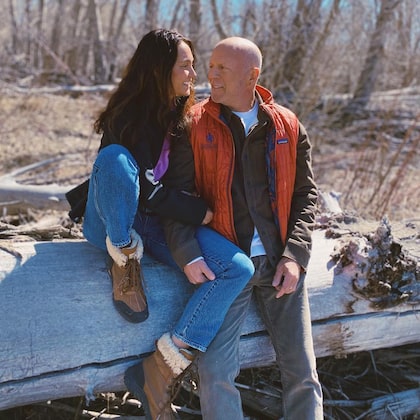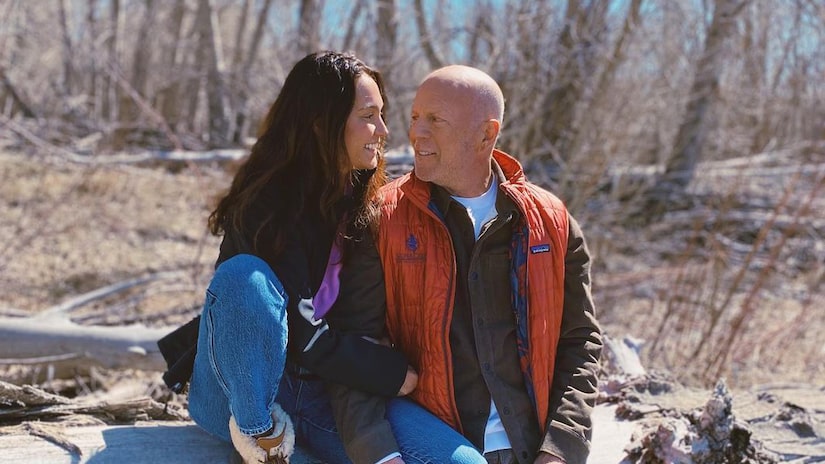
Bruce Willis’ wife Emma Heming is opening up about his battle with frontotemporal dementia and her private pain.
Heming sat down with Diane Sawyer for “Good Morning America” and got emotional while revealing what she would most like to ask him, now that the disease is robbing him of his ability to communicate.
“Just how he’s doing… Is he okay..? If he feels okay… if there’s anything that we could do to support him better. I would really love to know that,” she said, adding, “If he’s scared, if he’s ever worried… I just would love to be able to have a conversation with him.”
She also recalled the earliest symptoms of the disease, sharing, “For someone who was very talkative and very engaged, he was just a little more quiet, and when the family would get together, he would kind of just melt a little bit.”
Emma said he “felt a little removed, very cold, not like Bruce, who is very warm and affectionate, to going the complete opposite of that was alarming and scary.”
The median age for FTD is 56, and Dr. Bruce Miller, who has not treated Willis but is an expert in Frontotemporal Dementia, also spoke with Sawyer. He said symptoms can include “loss of drive, loss of empathy, addiction, compulsive behaviors, loss of executive control. These symptoms becoming progressive is very, very worrisome.”
Emma went on to say after he was diagnosed, “I was so panicked, and I just remember hearing it and just not hearing anything else. It was like I was free falling.”
Diane asked how Bruce reacted, but Emma said, “I don’t think Bruce ever really connected the dots.”
Dr. Miller said that is common, explaining, “The patient is incredibly unaware of what is happening. I think the parts of the brain that allow us to suffer and self-reflect are lost very early.”
As for how Bruce is doing now, Emma said, “Bruce is still very mobile. Bruce is in really great health overall. You know, it’s just his brain that is failing him… the language is going and you know we’ve learned to adapt and we have a way of communicating with him which is just a different way.”
Diane wondered if she still sees the old Bruce, and Emma said she gets “moments.”
“It’s his laugh, right?” Emma said. “Like, he has such a like a hearty laugh and, you know, sometimes you you’ll see that twinkle in his eye or that smirk and, you know, I just get, like, transported, and it’s just hard to see because as quickly as those moments appear, then it goes. That’s hard.”
Still, she insisted, “I’m grateful that my husband is still very much here.”
Emma, who shares two daughters with Bruce, is also helping other caregivers with her new book, “The Unexpected Journey: Finding Strength, Hope, and Yourself on the Caregiving Path,” which hits bookstores September 9.




Comments are closed, but trackbacks and pingbacks are open.